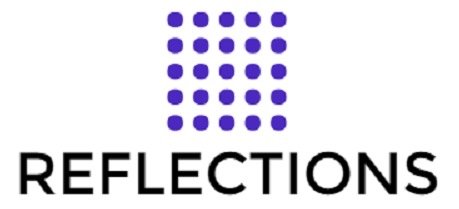Ethical Spending
Ethical Spending
You’ve probably heard the expression “Follow the Money” in relation to evaluating the ethics of an organization or an individual. In other words, a person or an organization may say they value such principles as protecting the environment, encouraging racial diversity in all aspects of society, and improving equity for disadvantaged groups, but how they spend their money may not be consistent with those values.
When I was growing up certain family values were conveyed in the way my parents spent their money:
1. Search for bargains. Check ads for best prices. Use coupons as much as possible.
2. Waste not, want not. Save anything that might be of possible value in the future.
3. Provide for the future of the family by buying an affordable home, setting aside funds for the education of children and grandchildren, and living frugally so that family resources will be sufficient to fund a comfortable retirement.
4. Practice good citizenship by making small, but regular donations to the church and organizations such as the March of Dimes.
5. Invest in educational opportunities for each family member.
I have inherited those values, but find they need to be modified for the ethical practices needed in the modern world.
1. Search for bargains. While financial resources should not be wasted, price cannot be the only consideration. Ethical shopping requires consideration of many other factors:
a. How will the purchase affect the environment, either because of how it was produced, what resources are required to use it, or what effect its disposal will have?
b. Who benefits from the purchase? It might be a large corporation which exists to enrich its shareholders, a local family business, a non-profit organization which has a focus on providing jobs for those with special needs, or some other entity which either makes the world a better place or causes pollution and depletion of scarce resources. How can we even know who benefits or what type of benefit is worthy of supporting?
c. Some spending is considered desirable to obtain tax savings, but should that really be a goal? A tax reduction means less money goes to the federal or local government, less money available for programs which benefit the general public, including the neediest members of society. Is it worth the time and money some people put into reducing their tax liability when the effect is to reduce the funds available to pay for things such as schools, parks, environmental protection, and programs for the needy?
2. Waste not, want not. This is a difficult principle to follow in today’s world, when excessive saving of material things results in clutter and wasteful spending on large homes or storage facilities. Products that once were built to last may be difficult or impossible to repair, encouraging tossing items out and purchasing new. The best way to think of this principle today is to:
a. Buy things that are likely to last a long time and then use them for as long as possible.
b. Don’t purchase items you already own just because you’d like more than one or there is a small new feature that you are eager to try out.
c. Don’t purchase things you don’t really need just to impress your friends and neighbors or for the fun of having something new.
d. Whenever possible, share tools and other items with neighbors so that unnecessary purchases and the space it takes to store them are not needed.
e. Consider the effects on the environment before any purchase, conserving water, electricity, fuel and other natural resources as much as possible.
3. Family support. Providing for your family is always a worthy goal, but it needs to be balanced by a concern for the surrounding community and the well-being of nature and humanity. Consider your personal standard of living compared to others in the local area and around the world. We need to plan for the well-being of our neighborhood and future generations, not just our immediate relations. In addition, consideration should be given to the harm that excessive wealth can do to individuals, taking away incentives to work or supporting unhealthy habits.
4. Good citizenship. Supporting community organizations continues to be a worthwhile goal, but what is the best way to do that? Token donations of a few dollars annually to a variety of organizations that send out multiple solicitations may not be the most responsible way. Do your donations represent a significant percentage of your income? Remember that traditional notion of a tithe – 10% of income. That might be a good place to start in considering a reasonable amount to donate but consider the amount of your total income in comparison to the community average. If your income is above average, you should be able to donate a higher percentage of your income. To make sure your donations are consistent with your values, a little research may be needed:
a. Does the organization use donations well? Have you checked out their rating with one of the groups that evaluates charities? For example, www.charitynavigator.org.
b. Does the organization support the neediest people in the community through its programs and hiring practices?
c. Do they operate in an environmentally responsible manner?
d. Are you able to observe or interact with them in a way that confirms they operate responsibly and in a way that allows your time and talents to help them be more effective?
e. Does the broader community benefit in a significant way from the organization’s work?
5. Supporting education is complicated.
a. Quality education is important for all people so that they can take care of themselves, their families, and their community. All of us share in the responsibility to see that everyone learns what they need to have a satisfying life.
b. The world is an evolving place and we need to constantly learn new things to adapt to these changes.
c. We need to be knowledgeable about public needs, so that we can participate in the governing of our community and help to select good leaders.
d. Quality education can only occur when there is adequate access to knowledge and a means of evaluating the truth and accuracy of information that is disseminated.
e. We need to fight against distractions and challenges which interfere with education, such as addictions of all kinds, inadequate nutrition, public health issues, crime, and individuals who seek power and money through spreading lies.
It seems like the world was once a much simpler place. My values are not really that different from those of my parents, but each of them seems to require more thought and consideration than they did for earlier generations. Follow the money in the evaluation of your own life to determine if you are living your values and how they might be the same or different from those of your parents.
This blog post is set up to share comments, so feel free to post them in the space below. What are your family spending values? How do they differ from your parents’?
You can become a subscriber to the Common Sense Reflections blog by following this LINK.
Check out some of the our other posts by clicking HERE.

